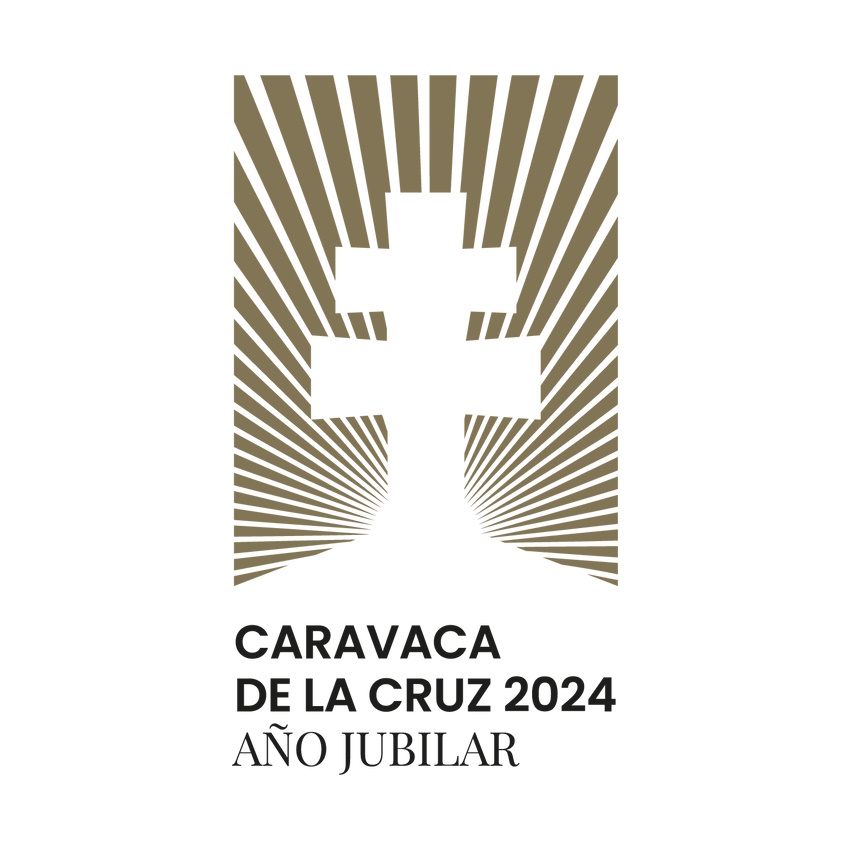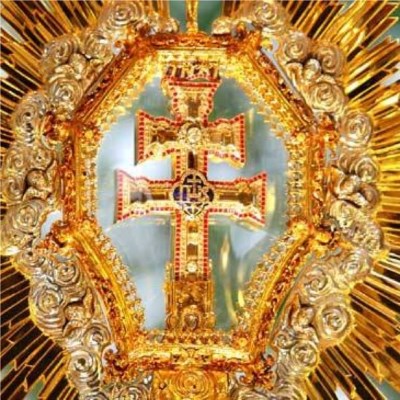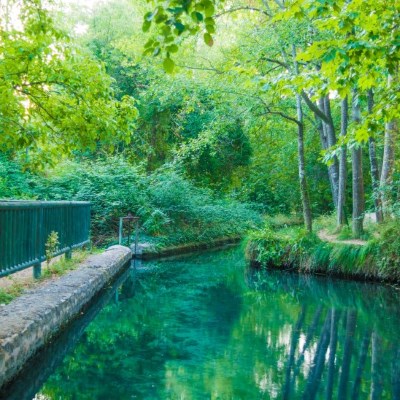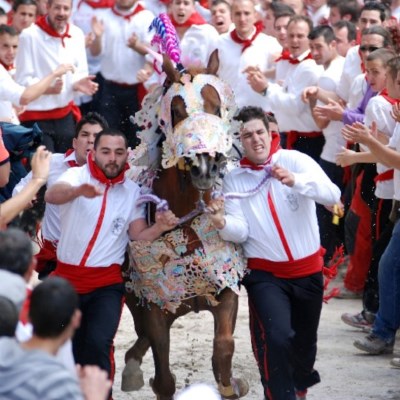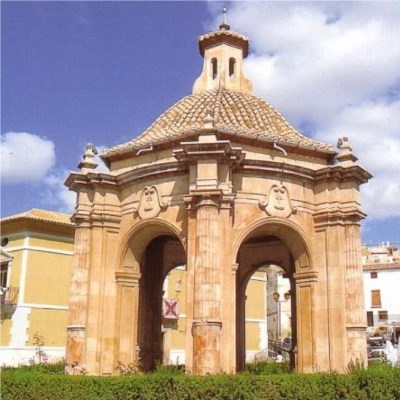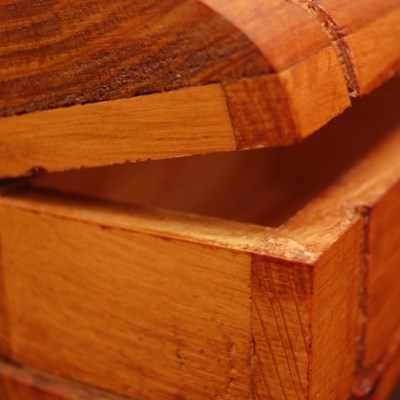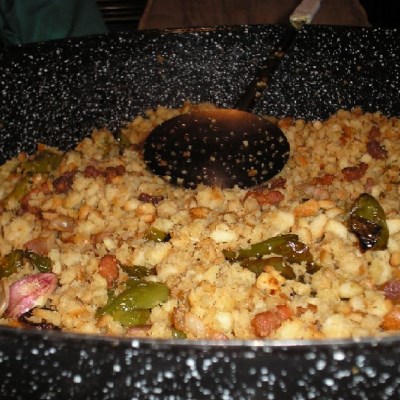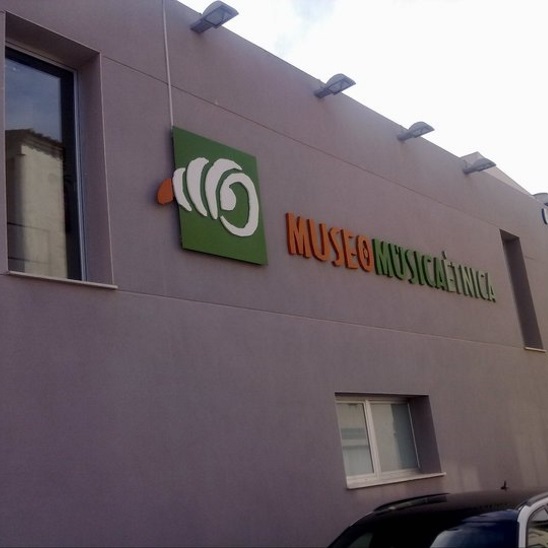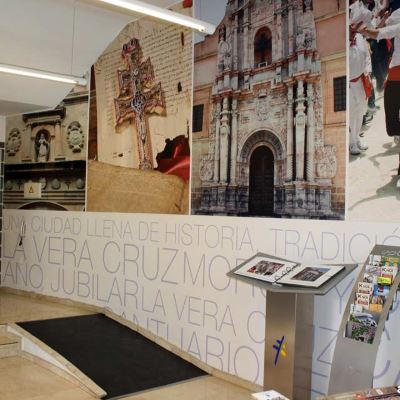El alcalde, los concejales de Turismo y Proyectos Estratégicos Caravaca 2024 y el hermano mayor de la Cofradía de la Vera Cruz han estado presentes en la exposición del proyecto, que ha tenido lugar en la Catedral de Pamplona a cargo de Pilar Valdés
Previamente se ha celebrado un encuentro de trabajo con representantes de municipios navarros por los que discurre la vía de peregrinación para ultimar detalles de la renovación de la señalización financiada por la Fundación Camino de la Cruz
"Queremos que sea un camino vertebrador y generador de desarrollo para la España de interior, ejemplo del espíritu municipalista gracias a la cooperación de 98 pueblos, que comprenden más de medio millón de habitantes", ha destacado José Francisco García
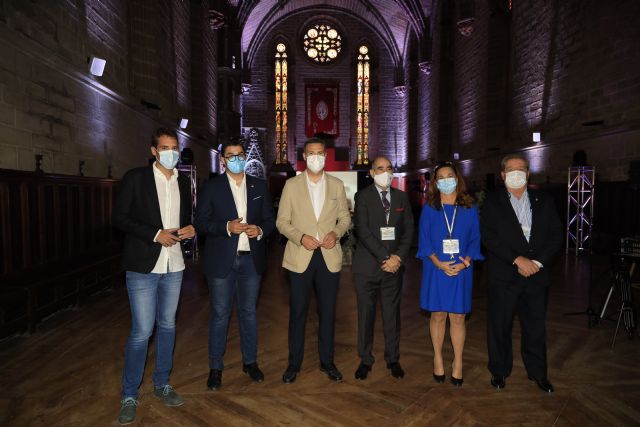 El Camino de la Vera Cruz de Caravaca ha sido una de las temáticas protagonistas del XVI Congreso Internacional de Turismo Religioso y Sostenible, que se celebra por primera vez en España en la Catedral de Pamplona. Una cita anual que reúne presencialmente y de forma telemática a expertos y profesionales de diversos países del mundo, especialmente de Latinoamérica,Europa y Medio Oriente.
El Camino de la Vera Cruz de Caravaca ha sido una de las temáticas protagonistas del XVI Congreso Internacional de Turismo Religioso y Sostenible, que se celebra por primera vez en España en la Catedral de Pamplona. Una cita anual que reúne presencialmente y de forma telemática a expertos y profesionales de diversos países del mundo, especialmente de Latinoamérica,Europa y Medio Oriente.
Antes de esta cita mundial sobre los destinos de turismo religioso, el alcalde de Caravaca de la Cruz, José Francisco García, ha mantenido un encuentro de trabajo con una representación de alcaldes y concejales de municipios navarros por los que discurre el Camino de la Cruz, así como con miembros de la directiva de la Asociación Navarra Camino de la Cruz. En la reunión, celebrada en Artajona, también han participado los concejales de Turismo y Proyectos Estratégicos Caravaca 2024, José Carlos Gómez y José Santiago Villa, respectivamente, así como el hermano mayor de la Cofradía de la Vera Cruz, Luis Melgarejo.
José Francisco García ha destacado que "la presencia de Caravaca de la Cruz en elXVI Congreso Internacional de Turismo Religioso y Sostenible marca un nuevo punto de inflexión en el ilusionante reto de relanzar el Camino de la Cruz".
Además, José Francisco García ha subrayado la importancia de trabajar unidos con todos los destinos implicados y, en este sentido, ha destacado que "queremos que sea un proyecto vertebrador y generador de desarrollo para la España de interior, ejemplo del espíritu municipalista gracias a la cooperación de 98 municipios, que comprenden más de medio millón de habitantes, respaldados por la Fundación Camino de la Cruz y por los gobiernos autonómicos de cinco comunidades".
"La unión de los pueblos y continuar consiguiendo fondos para estructurarlo y promocionarlo son solo algunos de los retos importantes a los que, con ilusión y empuje, hacemos frente con el horizonte claro del Año Santo 2024", ha destacado el alcalde caravaqueño.
La experta murciana en turismo religioso y doctoranda por la Universidad de Alicante, Pilar Valdés, ha sido la encargada de exponer ante los participantes en el congreso los antecedentes históricos, el trayecto e iniciativas en torno al Camino de la Cruz. Durante su ponencia, ha hecho referencia también a aspectos como las infraestructuras turísticas, transporte, comunicación, promoción o servicios de información.
Actualmente, el Gobierno de la Región de Murcia, a través del Instituto de Turismo de la Región de Murcia, está desarrollando el proyecto de renovación de la señalización de 'El Camino de la Cruz', gracias a la financiación de la fundación que lleva el nombre esta ruta de peregrinación recuperada en el año 2010, que cruza buena parte de la Península Ibérica de Norte a Sur desde Puente la Reina (Navarra) hasta Caravaca (Murcia). La vía cuenta con 900 kilómetros de recorrido, que suponen una aventura enriquecedora en la que se puede conocer la historia, cultura, paisaje y costumbres de un territorio de cinco comunidades autónomas cargado de grandes similitudes ycontrastes.


